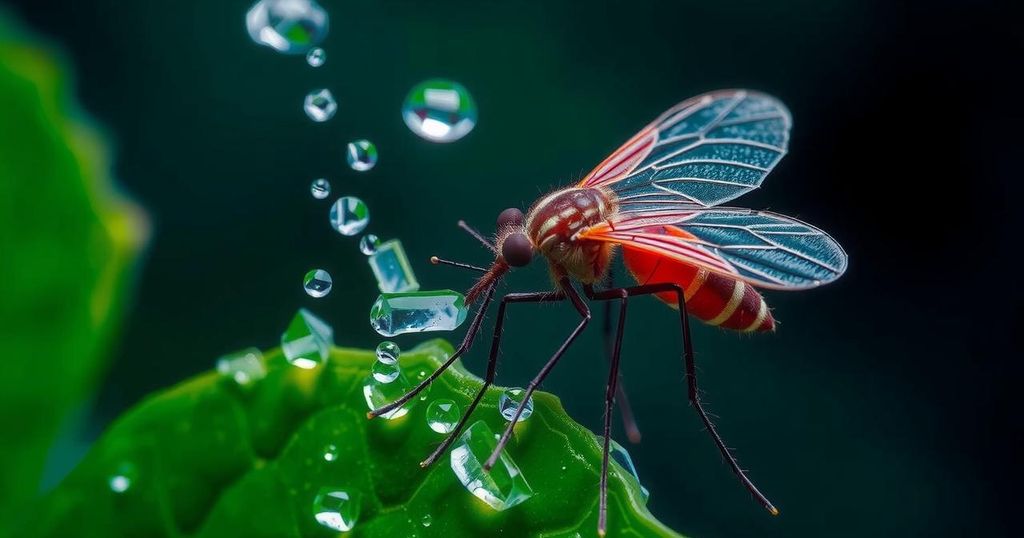Climate Change Responsible for One-Fifth of Global Dengue Cases
Recent research reveals that climate change accounts for around 20% of the surge in global dengue cases in 2023. The study suggests that rising temperatures promote mosquito habitats, facilitating the spread of dengue, particularly in tropical and newly affected areas. The introduction of Wolbachia-infected mosquitoes shows promise in controlling dengue outbreaks, exemplified by success in Niteroi, Brazil.
Recent research indicates that climate change is responsible for approximately one-fifth of the record dengue cases reported globally this year. A team of U.S. researchers aims to highlight how rising temperatures facilitate the dissemination of this viral disease, primarily transmitted through infected mosquitoes. Erin Mordecai, an infectious disease ecologist at Stanford University, emphasized that dengue is highly responsive to climate and serves as an apt disease for this focus. Traditionally endemic to tropical regions, dengue cases are now emerging in new areas due to increasing temperatures that expand mosquito habitats. The study, though yet to undergo peer review, assessed the correlation between elevated temperatures and dengue incidences in 21 countries across Asia and the Americas. On average, the researchers attribute roughly 19% of current global dengue cases to previously experienced climate warming. Temperatures ranging from 20 to 29 degrees Celsius (68-84 degrees Fahrenheit) are particularly conducive to dengue transmission, with projections indicating a potential 200% increase in cases within 25 years in elevated regions of Peru, Mexico, Bolivia, and Brazil. The findings suggest that over 257 million individuals currently reside in areas where climate change could potentially double dengue infections in the near future. Additionally, over 12.7 million dengue cases were reported worldwide as of September 2023, nearly twice the previous record, although substantial underreporting may suggest the actual figure could be closer to 100 million. This alarming data was discussed at the annual meeting of the American Society of Tropical Medicine and Hygiene in New Orleans. In an encouraging development, researchers have investigated the possibility of utilizing Wolbachia-infected mosquitoes to combat rising dengue cases. These bacteria inhibit the mosquitoes’ ability to transmit dengue. Following the introduction of these mosquitoes in Niteroi, Brazil, during one of the country’s worst dengue outbreaks, the city saw only a minor increase in cases, which were approximately 90% lower than before their introduction. This demonstrates the potential for long-term community protection against dengue surges through Wolbachia-enhanced mosquito populations, with plans to establish a mosquito production facility in collaboration with the Brazilian government.
Dengue fever remains a significant public health concern, particularly in warmer climates, where rising temperatures due to human-induced climate change have been associated with increased mosquito populations and, consequently, higher rates of dengue transmission. Understanding the link between climate change and disease spread is crucial for public health strategies, especially as extreme weather events become more frequent. The current state of the research emphasizes the urgency to explore effective control measures against dengue, particularly as mosquito habitats expand into areas previously unaffected by the disease due to climate shifts.
In conclusion, the burgeoning evidence linking climate change to rising dengue cases underscores the urgency of addressing environmental factors in public health strategies. The promising results related to Wolbachia-infected mosquitoes offer hope for long-term control measures against dengue outbreaks. The consequences of climate change on diseases like dengue highlight the need for global action to mitigate its impacts and protect vulnerable populations worldwide, reflecting the intricate connections between climate and health.
Original Source: www.barrons.com




Post Comment